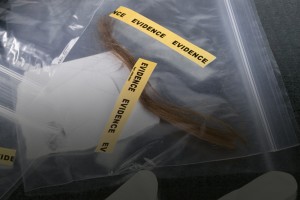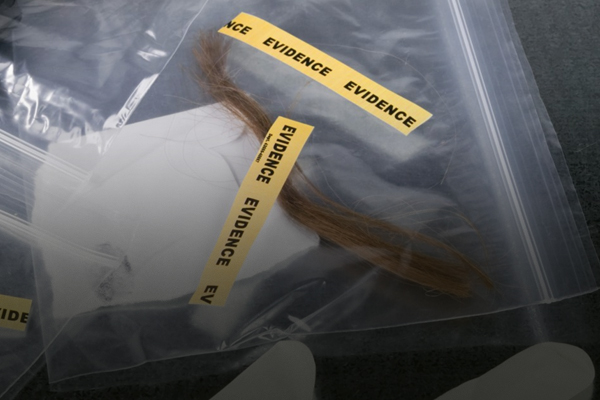
“…Cold-Case Christianity places far too much emphasis on the role of extrabiblical sources. No doubt there is a legitimate role for biblical archaeology and extrabiblical writing from antiquity. Christianity is, after all, a faith firmly rooted in human history. But there is a grave danger when truth is suspended because of an apparent lack of corroboration from extrabiblical sources. And Wallace, I’m afraid, wanders too close to this dark side of apologetics… Wallace seems to suggest we cannot affirm the truth of the Gospel accounts without the stamp of approval from archaeology and other extrabiblical sources. Such reasoning is dangerous, not least because it cannot affirm the inerrancy of the Bible. But also, it places the final court of appeal in the realm of extrabiblical sources rather than of God’s all-sufficient, all-powerful Word.”
Granted, the critic in this case favors presuppositional apologetics, so it’s clear that any evidential approach (such as might be offered in books like The Case for Christ or I Don’t Have Enough Faith To Be An Atheist) is likely to come under fire, but I thought I should at least explain why evidentialism has been so powerful in my own life. First, let me begin by saying that I have repeatedly affirmed the role that God plays in first removing the enmity that all of us have in our natural, fallen condition. I’ve never argued that humans begin from a position of neutrality. I think we are, instead, aligned against God until he does something to remove our hostility. But once that has occurred, I do believe the role of evidence is critical. Let me share my own personal story. My father was, and still is, an atheist. But his wife, my stepmother, is a Mormon. I have six half-brothers and sisters who were raised in the Mormon Church.
When I first became interested in the things of God (after God removed the enmity I had toward Him for 35 years), I began to investigate the gospels, as I have chronicled in my book. But I also began a parallel investigation; Mormon missionaries “coincidentally” visited me during these early days of interest (I’ve always suspected that my sister called them). As I read through my $6.00 pew Bible, I also began to read through the Book of Mormon given to me by the missionaries. To be honest, the two books initially seemed to share many characteristics (from my theologically uneducated perspective), until I began to take the approach of an evidential investigator. The same kinds of evidence that corroborated the Bible as a reliable record of Jesus, betrayed the Book of Mormon as a piece of fiction. As a result, I had lots of questions for the missionaries when they returned. I asked them about the complete lack of support for any of the claims of the Book of Mormon. Imagine, if they responded in the following fashion:
“…Jim, don’t place too much emphasis on the role of sources other than the Book of Mormon as you are examining the Book of Mormon. No doubt there is a legitimate role for archaeology and non-Mormon writing from antiquity. Mormonism is, after all, a faith firmly rooted in human history. But there is a grave danger when truth is suspended because of an apparent lack of corroboration from sources other than the Book of Mormon. Jim, don’t wander too close to this dark side of apologetics… You’re seeming to suggest we cannot affirm the truth of the Book of Mormon accounts without the stamp of approval from archaeology and sources other than the Book of Mormon. Such reasoning is dangerous, not least because it cannot affirm the inerrancy of the Book of Mormon. But also, it places the final court of appeal in the realm of extra-Mormon sources rather than of God’s all-sufficient, all-powerful Word, the Book of Mormon.”
If the missionaries had taken the approach offered by some of my presuppositional brothers, I might have trusted the Book of Mormon without testing. See the problem? Many of my Mormon family members could, in fact, make the statement I just quoted. I am a Christian today, because I took an evidential approach to my faith. I’m not a Mormon today, because I took an evidential approach to my faith. I’m grateful for my evidential detective inclinations because they guided me to the truth. God moved first, I responded with the evidence God provided. I’m at home with evidentialism because the evidence brought me home.
I am a Christian today, because I took an evidential approach to my faith. God moved first, I responded with the evidence God provided. I’m at home with evidentialism because the evidence brought me home. Share on X
J. Warner Wallace is a Dateline featured Cold-Case Detective, Senior Fellow at the Colson Center for Christian Worldview, Adj. Professor of Christian Apologetics at Talbot School of Theology, Biola University, author of Cold-Case Christianity, God’s Crime Scene, and Forensic Faith, and creator of the Case Makers Academy for kids.
Subscribe to J. Warner’s Daily Email
J. Warner Wallace is a Dateline featured cold-case homicide detective, popular national speaker and best-selling author. He continues to consult on cold-case investigations while serving as a Senior Fellow at the Colson Center for Christian Worldview. He is also an Adj. Professor of Christian Apologetics at Talbot School of Theology, Biola University, and a faculty member at Summit Ministries. He holds a BA in Design (from CSULB), an MA in Architecture (from UCLA), and an MA in Theological Studies (from Gateway Seminary).

































Pingback: Really Recommended Posts 2/8/13 « J.W. Wartick -"Always Have a Reason"
Pingback: Q&A: Are There Extra-Biblical Sources for the Resurrection of Jesus? - A Clear Lens
Pingback: mid-week apologetics booster (1-10-2019) – 1 Peter 4:12-16